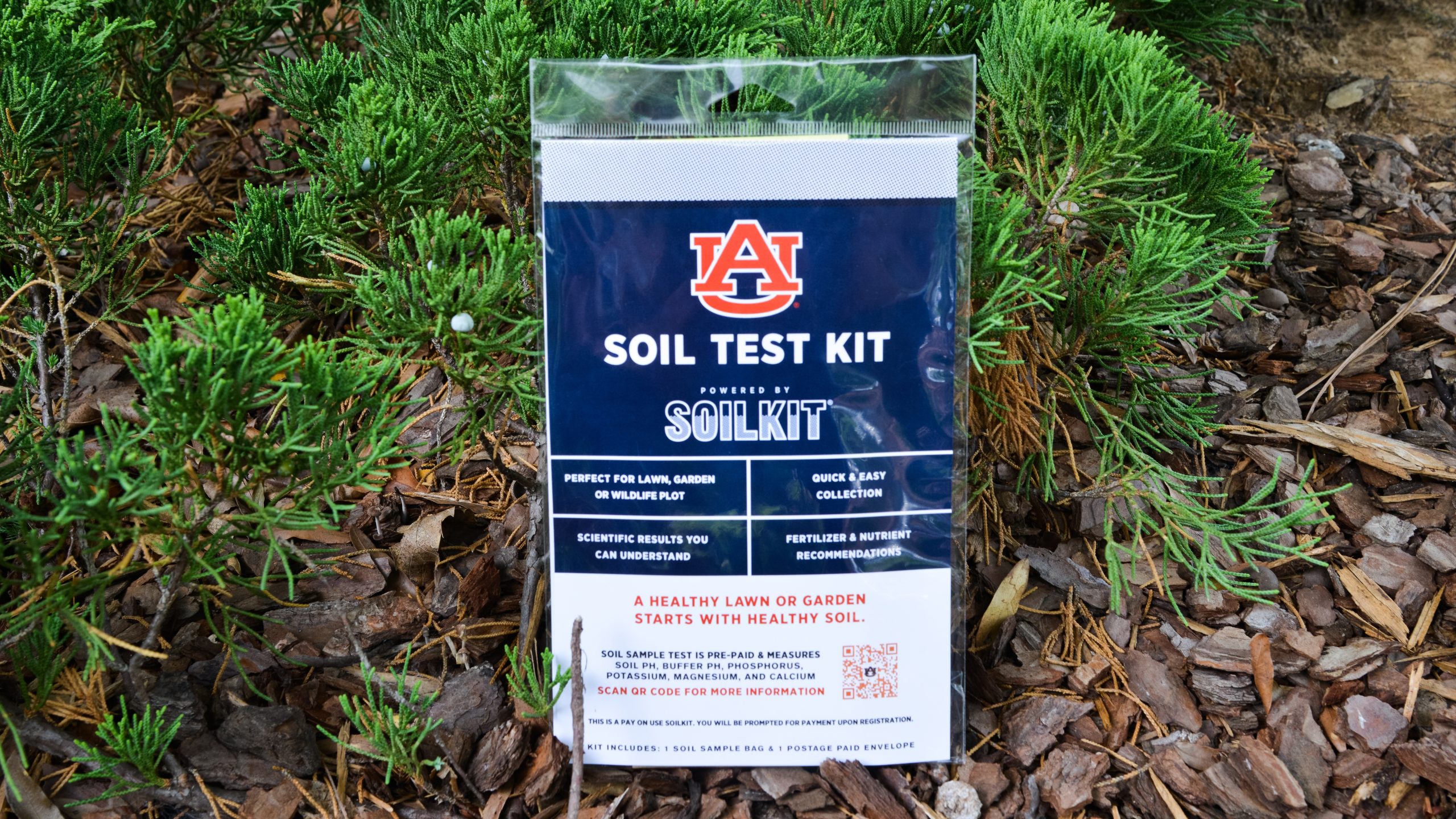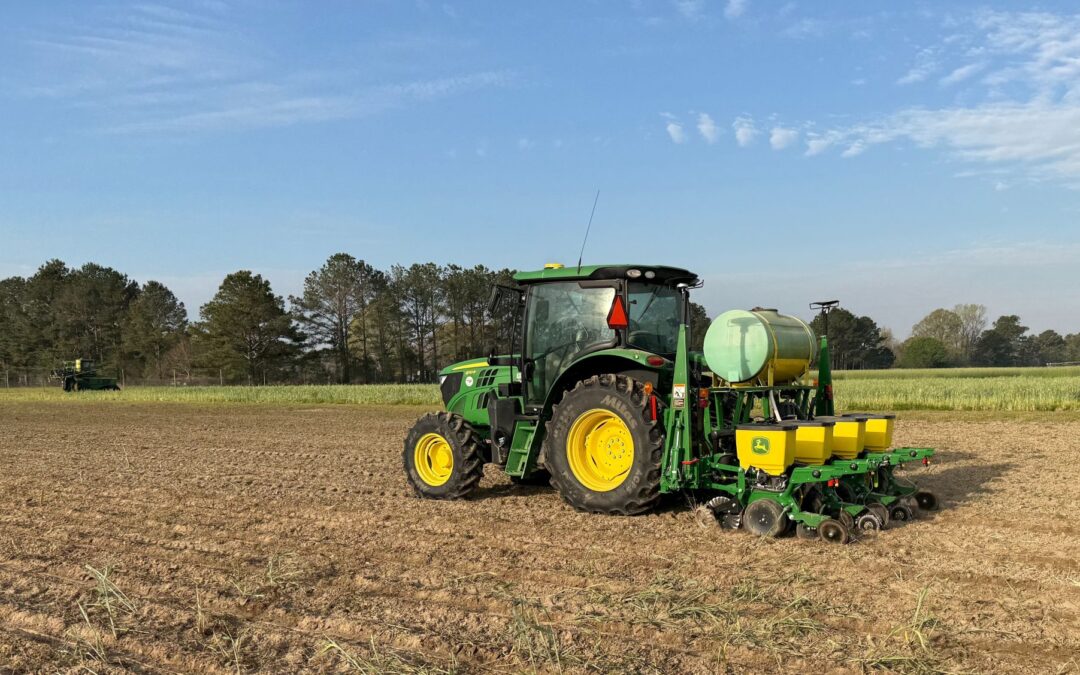The College of Agriculture at Auburn University recently partnered with AgriTech Corp. on an Auburn-branded SoilKit to deliver digital, easy-to-understand soil test results to homeowners, landscapers and municipalities.
This SoilKit marks the first time a public, land-grant university has partnered with a private company to deliver a product of its kind. Consumers who purchase the Auburn-branded SoilKits will send their samples to be tested by Auburn scientists at the Auburn University Soil, Forage and Water Testing Laboratory.
After samples are processed, consumers receive a digital version of their soil test results and customized product recommendations via email. The test results and recommendations are based on decades of agricultural research dating back to the founding of the Auburn College of Agriculture in 1872.
With the digital tools SoilKit provides, such as address geolocation, autofill and satellite-driven square footage calculation, it is now easier than ever to receive quality soil test results with specific product recommendations.
“This partnership with SoilKit will allow the Auburn University Soil, Forage and Water Testing Laboratory to connect with even more homeowners while providing clear and concise soil care recommendations utilizing research backed by Auburn University,” said Dr. Jessica Davis, manager of the lab.
Through the data they receive through this partnership with SoilKit, Auburn will have a data repository to monitor soil health throughout the state of Alabama and make recommendations based on what is best for the health of Alabama soil and water.
“Auburn University fertilizer recommendations are based on decades of research to correlate soil-test nutrient levels with plant response,” said Audrey Gamble, assistant professor and extension specialist in the Department of Crop, Soil and Environmental Sciences. “Using research-based recommendations ensures that enough fertilizer is applied to promote healthy plant growth without adding excess fertilizer, which can pollute nearby ground- and surface-waters.”
This partnership benefits both parties as SoilKit is now matched with a national leader in agricultural science and Auburn can connect with a greater number of homeowners, landscapers and municipalities to deliver easy-to-understand results and recommendations through this simplified soil testing technology.
“From the beginning, this partnership has always seemed like the perfect fit,” said Christina Woerner McInnis, CEO and founder of AgriTech Corp. “From the SoilKit side, it’s exciting to partner with Auburn as they are a nationally recognized agriculture land-grant university and have been experts in agricultural science for over a century. As my alma mater, Auburn has a special place in my heart, and I look forward to collaborating with Auburn on the forefront of cutting-edge agronomy.”
Each Auburn-branded SoilKit will cost $29.95 and will be available to purchase online at soilkit.com. They will also be available in the future to purchase at Alabama Extension offices located in each of Alabama’s 67 counties. To find the Alabama Extension office closest to you, visit the online directory.





